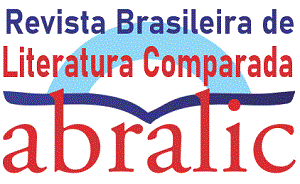Resumo em Português:
Resumo Este ensaio estuda aspectos da história corrente e do futuro estatuto da disciplina Literatura Comparada no Irã. Compara as normas teóricas da Literatura Comparada contemporânea à noção perso-islâmica pré-moderna de “Comparação,” que havia sido teorizada no Iran e no Mundo Árabe como fundamento dos estudos em literaturas comparadas árabe, islâmica e iraniana. O artigo realça a profundidade do centrismo perso-xiita institucional no cânone acadêmico iraniano e mostra de que modo a disciplina da Literatura Comparada tem sido usada como veículo para o transnacionalismo deste centrismo perso-xiita, manifesto em “Mundo do Persianato” no contexto dos estudos acadêmicos europeu e norte-americano. O neologismo “Persianato” criado por Marshall Hodgson nos anos de 1960, tem sido situado junto ao paradigma inaugurado pela virada linguística e cultural dos anos 1970, dos Estudos Pós-Coloniais que emergem em fins de 1990 a partir do Orientalismo de Said, e à formulação de Sheldon Pollock da “Cosmópolis do sânscrito” no século XXI. O artigo demonstra como os comparatistas do Persianato, sob a bandeira dos Estudos Pós-Coloniais, não somente apagaram a experiência dos subalternos internos e colonizados não-persas do Irã em favor da de Estados do Oriente Médio, numa matriz binária (imperialismo ocidental versus um mundo islâmico “colonizado”), como também apresentam uma imagem daquela disciplina igualmente irreal e exagerada aos leitores ocidentais. O artigo mapeia ademais as discussões desenroladas no âmbito dos Estudos Pós-coloniais do Oriente Médio sobre “colonialismo interno”, como ferramenta analítica para se pensar a respeito das operações e dos entrelaçamentos de sistemas de poder no Oriente Médio e estrangeiro, aplicada aqui pela primeira vez à disciplina da Literatura Comparada.
Resumo em Inglês:
Abstract This essay studies the history, current, and future status of the discipline of comparative literature in Iran. It compares the theoretical norms of contemporary comparative literature to the Pre-modern Perso-Islamic notion of “comparison,” which has been theorized in Iran and the Arab World as the Arabic, Islamic, and Iranian schools of comparative literature. The article highlights profound institutional and canonical Perso-Shi’a centrism in Iranian academia, and shows how the discipline of comparative literature has been used as a vehicle for transnationalism of this Perso-Shi’a centrism that has manifested in “Persianate World” in the context of European and North American academia. Marshall Hodgson’s 1960s neologism “Persianate World” has been placed with the paradigm shifts ushered in by the linguistic and cultural turns of the 1970s, the postcolonial scholarship that grew from Edward Said’s Orientalism in the late 1990s, and Sheldon Pollock’s formulation of a ‘Sanskrit cosmopolis’ in the 21st century. The article explains how the Persianate comparatists, under the banner of postcolonial studies, not only erased the experience of the subaltern and internally colonialized non-Persians of Iran in favor of the Middle Eastern states in a binary matrix (Western Imperialism versus a “colonialized” Islamic world), but also represents an unrealistic and exaggerated picture of the discipline to Western readers. The article further maps the conversations within the postcolonial Middle East about “internal colonialism,” as an analytic tool for thinking about operations and interlocking systems of power in the Middle East and abroad, here applied to the discipline of comparative literature for the first time.
